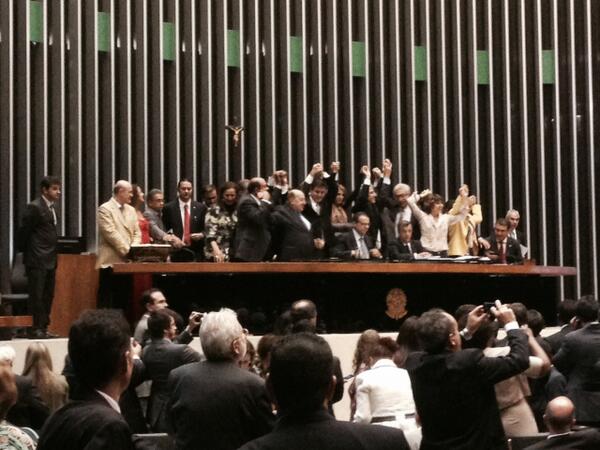A Bill of Rights for the Internet: Brazil Leads the Way

Late yesterday, Brazil’s House of Representatives passed the Marco Civil, a bill aimed at guaranteeing civil rights in the use of the Internet in Brazil. Specifically, it aims to protect privacy rights, net neutrality, safeharbors for internet service providers and online service providers, open government, and setting forth that access to the internet is a requisite to the exercise for civic rights.
The drafting of the Civil Marco Internet in Brazil began in 2009 through a collaborative effort between the Office of Legislative Affairs of the Ministry of Justice, in partnership with the School of Law of the Rio de Janeiro at the Getulio Vargas. Citizen feedback on this bill (between November 2009 and June 2010) was received through social media by more than 2000 contributions of internet users across the country. (More here about the process).
The Marco Civil is a significant piece of legislation, both in its collaborative and transparent creations but through the protections it offers. Counteracting efforts to regulate the use of the Internet by companies and individual users through criminal codes, the Marco Civil secures important rights to Internet users through a civil framework instead. Furthermore, it cracks down on current practices of Brazilian internet providers, such as restricting connection speeds for different types of content accessed by users - music and video downloads being a classic example, as well as outlawing methods for tracking unaware Internet users through deep packet inspection (DPI).
The Marco Civil has been well-received by civil society organizations in Brazil and worldwide, and showcases a best practice for protecting rights and freedoms online above all other interests. Transparent and participatory methods to enact legislation are an important tenet to a free and open society. At NDI, we are supportive of such methods for creation of all legislative processes, and welcome such protections for human rights online in other countries.
